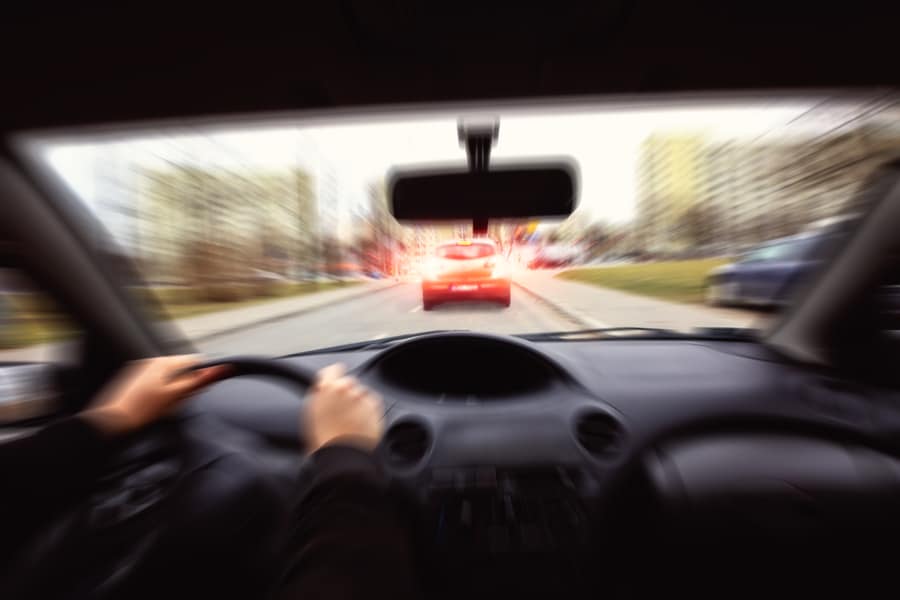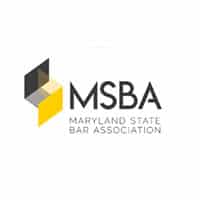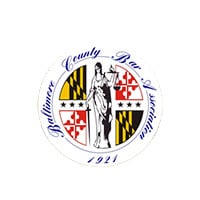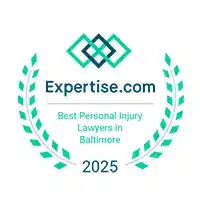Is Brake Checking Legal In Maryland?

Most drivers in Maryland have likely experienced brake checking, either as the driver or as the person behind them. This dangerous maneuver frequently results in rear-end collisions, leading to significant damages and injuries.
Brake-checking incidents have become a growing concern across the U.S., contributing to daily injuries. Understanding the dangers of brake checking in Maryland and knowing your legal options if you are involved in such an accident can be crucial. If you’re in Baltimore and have been affected by brake checking, this guide will provide valuable insights.
What Exactly is Brake Checking?
Brake checking is a hazardous driving behavior in which a driver abruptly stops their car or slams on the brakes in front of another vehicle. This action is typically done to signal frustration or anger, often due to perceived tailgating or other driving annoyances.
This dangerous practice can lead to the following vehicle rear-ending the first car or swerving to avoid a collision. Such maneuvers can cause pile-ups or multi-car accidents, escalating the risk of severe injuries and extensive vehicle damage.
According to the National Highway Traffic Safety Administration (NHTSA), almost 70% of traffic fatalities are caused by aggressive driving. Brake checking is a prime example of aggressive driving that significantly increases the likelihood of accidents.
Why Do Drivers in Baltimore Brake Check?
Brake checking is often a form of road rage, typically executed by a driver angry at another driver for following too closely, a behavior known as tailgating. Tailgating is an illegal driving practice in which a driver follows another vehicle so closely that it does not leave space for safe braking. This can lead to severe rear-end collisions, especially if the front driver brake checks, halts abruptly, or changes lanes unexpectedly.
Despite the apparent dangers, drivers engage in brake checking for various reasons, primarily out of anger and frustration. Here are the two main reasons why this happens:
Road Rage
- Anger and Retaliation: Brake checking is often a response to being tailgated. Drivers may feel threatened or annoyed by a car following too closely and use brake checking as a means of control or retaliation. This behavior is frequently seen in road rage incidents where emotions run high and rational thinking takes a backseat.
- Dangerous Overtaking: Some motorists, fueled by anger, may dangerously overtake the offending vehicle and slam on their brakes to send a message. This reckless behavior can lead to severe accidents, as the tailgating driver may not have enough time to react.
Crash for Cash
- Insurance Fraud: A more sinister reason for brake checking is to cause a collision to get an insurance payout intentionally, cash in hand for the damages, or both. This fraudulent activity can be a nightmare for victims, especially those leasing personal or business vehicles, as the repairs must be fixed before the car is returned.
- Manipulating Accidents: Perpetrators of crash-for-cash schemes deliberately brake checks to manipulate the situation in their favor, creating scenarios where the tailgating driver is blamed for the accident. This can lead to costly legal battles and insurance claims for the innocent party.
The Impact of Brake Checking
Brake checking is not only a dangerous and illegal practice but also one that can have severe consequences:
- Injury or Death: Sudden braking can lead to severe accidents, causing significant injuries or fatalities.
- Financial Burden: Drivers involved in brake checking accidents may face hefty repair bills, loss of no-claims bonuses, and increased insurance premiums.
- Legal Repercussions: Depending on the severity of the incident, brake checking can result in fines, legal actions, and even criminal charges.
What Are Maryland Laws on Brake Checking and Following Too Closely?
Maryland law addresses dangerous behaviors such as brake checking and following too closely. Brake checking can be classified as reckless or aggressive driving, which carries significant penalties.
Maryland law explicitly prohibits following another vehicle too closely. According to Maryland Statute §21–310. (a), drivers must maintain a distance that is “reasonable and prudent,” considering the speed of the vehicles and the condition of the highway. This law aims to prevent rear-end collisions and ensure safe driving practices.
Reckless driving, including brake checking, is defined under Maryland Statute §21–901.1. This statute describes reckless driving as operating a vehicle with a willful or wanton disregard for the safety of persons or property. Such behavior can result in severe penalties, including fines and points on the driver’s license.
Aggressive driving, often associated with road rage, involves a series of illegal driving behaviors that endanger others. While there isn’t a specific statute for aggressive driving, it encompasses actions like speeding, erratic lane changes, and brake checking. These behaviors collectively contribute to unsafe road conditions and increase the risk of accidents.
Determining Fault in Crashes Involving Brake Checking in Maryland
Determining fault in crashes involving brake checking and tailgating in Maryland can be intricate and challenging. Both brake checking and tailgating violate traffic laws, potentially leading to shared responsibility for the accident.
If you’re involved in such a crash, working with an experienced Baltimore car accident lawyer such as John Leppler is crucial for advocating your rights and seeking compensation for your injuries. However, Maryland’s strict rules might limit your ability to recover damages if you were found to be tailgating or brake checking.
To establish fault in these incidents, it’s essential to understand the concept of negligence, which consists of four key elements:
- Duty: The obligation to adhere to reasonable care while driving. All drivers owe this duty to others on the road.
- Breach: A violation of the established duty of care. This can occur through actions like tailgating or brake checking.
- Causation: The need to prove that the breach of duty directly caused the accident. This involves showing a direct link between the negligent behavior and the resulting collision.
- Damages: Proof of actual harm or injury resulting from the accident. This can include physical injuries, property damage, or financial losses.
In Maryland, tailgating and brake checking violate traffic laws, making it possible for either driver to be deemed negligent. However, determining fault is further complicated by Maryland’s pure contributory negligence rule. This rule significantly impacts fault determination and compensation:
Unlike most states that use comparative negligence, which assigns a percentage of fault to each driver and adjusts damages accordingly, Maryland’s system bars any recovery of damages if the victim is found to be even slightly at fault.
This means that neither can sue the other for compensation if both drivers engaged in wrongful behavior, such as tailgating and brake checking. Even if one driver is primarily at fault, the other driver’s minor fault can prevent any recovery of damages.
For instance, in many states, if both drivers are equally at fault, they might each cover 50% of the damages. In Maryland, this is not the case. If a victim is found to be even 1% at fault, they cannot recover damages from the other party.
Understanding these nuances is crucial for anyone involved in a brake-checking or tailgating accident in Maryland.
Why Brake Checking and Tailgating Cases Are Challenging to Prove
Proving a case involving brake checking and tailgating in Maryland is often challenging due to several factors complicating the legal process. Understanding these challenges can help you face the complexities if you are involved in such an incident.
Lack of Evidence
One of the primary difficulties in proving a brake checking or tailgating case is the lack of tangible evidence. Demonstrating that these actions occurred can be challenging without clear video footage or reliable eyewitness testimony. Unlike other types of accidents that leave behind physical evidence, brake-checking incidents often do not.
He Said, She Said Situations
Many cases boil down to one driver’s word against the other’s. Each driver may present different versions of the event, making it difficult to establish the truth. This can lead to a dead-end where neither party can prove their account of what happened.
Absence of Physical Evidence
Brake checking or tailgating incidents may not leave behind physical evidence that can conclusively establish what occurred. Unlike accidents involving severe collisions or visible damage patterns, these cases often lack the forensic evidence to prove fault.
Legal Complexity
The legal aspects of these cases can be intricate. In many instances, both drivers might share some fault, one for tailgating and the other for brake checking. This shared responsibility can complicate matters, particularly in Maryland, where contributory negligence rules apply. Under these rules, if you are found to be even partially at fault, you may be barred from recovering any compensation.
Determination of Intent
Proving that a driver intentionally brake-checked another involves establishing intent, which is inherently complex. Understanding the mindset of the accused at the time of the incident is complex and often requires more than just circumstantial evidence.
Given these challenges, working with a skilled Maryland car accident lawyer is essential.
Accidents Caused By Sudden Braking or “Stopping Short” in Baltimore
Accidents caused by sudden braking or “stopping short” are common occurrences on Baltimore’s busy highways. The constant congestion and heavy traffic on major roads such as I-95 and 695 in Maryland create conditions where stop-and-go traffic is the norm. This environment and aggressive drivers increase the likelihood of rear-end collisions due to sudden stops.
Many people assume that the driver in the rear vehicle is always at fault for a rear-end collision. This is often the case, especially when the rear driver tailgates or fails to maintain a safe following distance. Tailgating, usually driven by frustration with traffic conditions, can lead to severe accidents if the front driver stops suddenly.
In these instances, the rear driver’s negligence in maintaining an appropriate distance is typically the primary cause of the crash.
However, the driver in the rear is not always to blame. Several factors can contribute to a sudden braking incident that places fault on the front driver.
For example, if the front driver fails to use turn signals or brake appropriately, it can lead to a collision. Additionally, improper vehicle maintenance, such as non-functioning brake lights or turn signals, can cause the rear driver to be unaware of the front vehicle’s intentions to stop or slow down.
In some cases, the front driver might create a dangerous situation by cutting off another vehicle in traffic. Merging or turning too closely in front of another car can deprive the rear driver of the opportunity to respond safely, leading to a rear-end collision. When rear-end crashes are part of a chain reaction or multi-vehicle accident, determining fault becomes even more complex, as multiple factors and drivers may contribute to the incident.
Understanding these nuances is crucial for evaluating compensation options following a rear-end collision. Depending on the specific circumstances of the accident, both the front and rear drivers may have grounds to pursue an insurance claim or personal injury lawsuit.
Knowledgeable Auto Accident Attorney in Baltimore, Maryland
When navigating the aftermath of a car accident, having a knowledgeable and experienced attorney by your side is crucial. John Leppler, a dedicated auto accident attorney in Baltimore, Maryland, offers personalized attention and expert legal guidance to those affected by car crashes.
Unlike large firms, John is always available to speak with you and answer any questions you may have. His commitment to individualized support ensures you receive the attention and care you deserve during this challenging time.
If you’ve been involved in a car accident in Baltimore and need a trusted advocate to fight for your rights, don’t hesitate to contact John Leppler. With his extensive experience and unwavering dedication, John is ready to help you secure the compensation and justice you deserve. Contact Leppler Injury Law today for a free consultation and take the first step towards a brighter, more secure future.







